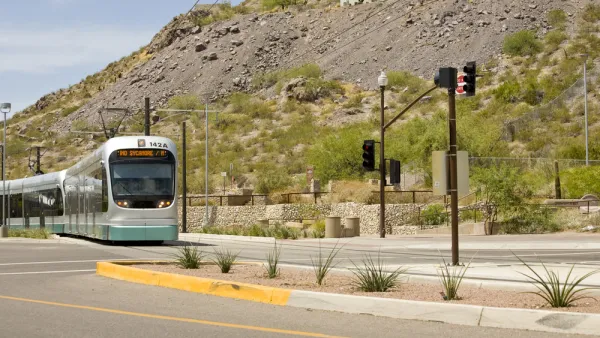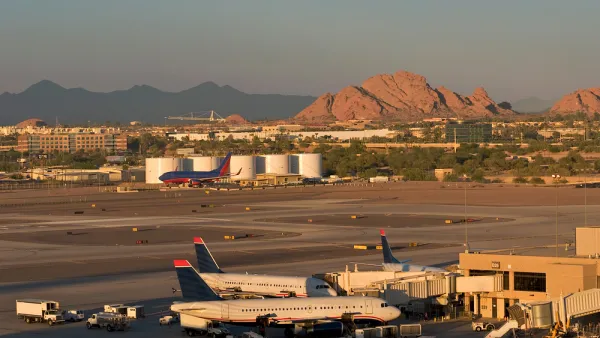As Wellington 'Duke' Reiter notes, for the past several decades Phoenix has shown it expertise in horizontal growth. But, as development heats up again after the Great Recession, he says the city's growth must be managed to increase density.
Reiter, the senior vice president of the ASU Foundation and vice chairman of the Urban Land Institute Arizona, summarizes the discussion as a recent event organized by ULI Arizona called “Here We Grow Again.” "While the demographic evidence at this conference suggested that we should brace for expansion, there was a parallel and equally compelling theme featuring exactly the opposite imperative: How small can you make your city?"
Density, Reiter explains, is valued by today's business leaders, and is crucial to remaining competitive in attracting employers and employees. "Companies built on innovation are seeking a place with a sense of identity, public transportation, restaurants, cultural venues and, if at all possible, a compelling blend of the old and the new," he notes.
"The challenge for the Phoenix region is simple: Will our considerable footprint — one that has been enabled by the automobile and access to moderately priced housing, fuel and water — be our destiny? Can our archipelago of loosely coordinated municipalities compete with more cohesive offerings by other cities?"
"Most importantly, can we invest strategically and even disproportionately in key institutions and select areas that represent only a percentage of the total landmass of the Phoenix area but which could be transformative for the entire region?"
"The answer has to be yes."
FULL STORY: To grow up, Phoenix must grow small

Analysis: Cybertruck Fatality Rate Far Exceeds That of Ford Pinto
The Tesla Cybertruck was recalled seven times last year.

National Parks Layoffs Will Cause Communities to Lose Billions
Thousands of essential park workers were laid off this week, just before the busy spring break season.

Retro-silient?: America’s First “Eco-burb,” The Woodlands Turns 50
A master-planned community north of Houston offers lessons on green infrastructure and resilient design, but falls short of its founder’s lofty affordability and walkability goals.

Test News Post 1
This is a summary

Analysis: Cybertruck Fatality Rate Far Exceeds That of Ford Pinto
The Tesla Cybertruck was recalled seven times last year.

Test News Headline 46
Test for the image on the front page.
Urban Design for Planners 1: Software Tools
This six-course series explores essential urban design concepts using open source software and equips planners with the tools they need to participate fully in the urban design process.
Planning for Universal Design
Learn the tools for implementing Universal Design in planning regulations.
EMC Planning Group, Inc.
Planetizen
Planetizen
Mpact (formerly Rail~Volution)
Great Falls Development Authority, Inc.
HUDs Office of Policy Development and Research
NYU Wagner Graduate School of Public Service




























